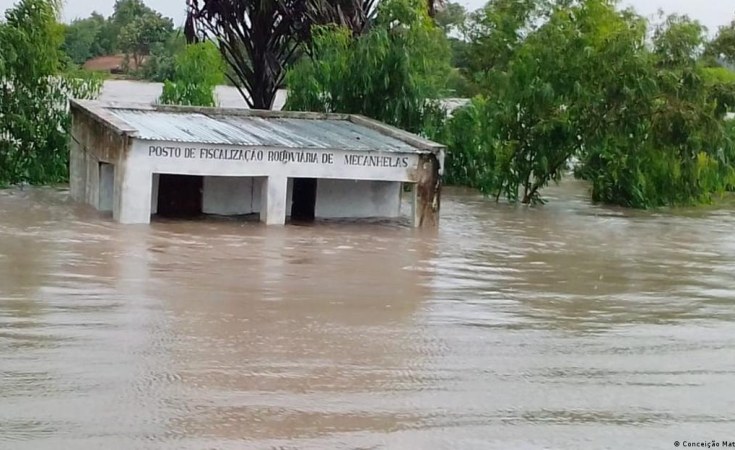Hundreds of people have been killed as tropical cyclone Freddy continues its trail of destruction.
Authorities fear more casualities could emerge in the coming days as residents in southern Malawi and Mozambique pick through the debris caused by tropical cyclone Freddy.
Over 300 deaths have been reported in Mozambique, Malawi and Madagascar. Officials believe at least 88,000 have been heavily affected by the record-breaking storm. To shelter the displaced, 165 camps have been set up in Malawi.
Three days of hell
The destruction was at its worst in the days since Monday and especially so in southern Malawi which has seen power blackouts and a shortage of running water. To make matters worse, damaged roads and washed away bridges have hampered rescue efforts.
The death toll in Malawi stands at at least 225, while Mozambique said more than 50 people had died. Madagascan authorities reported at least 27 deceased. The combined death toll is expected to rise.
Among the worst hit areas is in and around Blantyre, Malawi's second city of roughly 800,000 people. Many died in mudslides in the hilly terrain, and torrential rain swept away thousands of homes.
"Some in this area have lost one house and maybe one bedroom," said local resident Patouma Devisoni. "But I have lost many houses around my compound. All my houses are destroyed. Luckily, all my children are alive. I rescued them all," he said. "Most of my properties are destroyed. My food, my blankets, my clothes and all the other necessities."
Residents stared in disbelief at the huge ravines the storm wrought on the roads. As the rain lashed down, many had to clamber over makeshift bridges to escape the mud and rising water.
64-year-old Aina Pigoti and her seven children escaped the surge and sought shelter at a relative's house after their home in the township of Mbayani was destroyed.
"I am seriously affected. You see, when such things happen everyone looks at you as if you are a fool, but it is not so," she told DW.
Violent storm
Tropical cyclone Freddy is one of the longest-lasting and strongest tropical storms ever recorded.
Over 35 days, it has travelled 8,000 kilometers over land and the Indian Ocean, leaving a trail of destruction. It first hit land in Madagascar, then moved on to Mozambique, before circling back over the warm waters of the Mozambican Channel.
It then gained even more strength and crashed back into southern Africa, hitting Mozambique's Zambezia, Niassa and Sofala provinces and Malawi with winds speeds of up to 200 kilometers per hour. Scientists say human-caused climate change has made cyclone activity more intense and frequent over the past years.
Malawian President Lazarus Chakwera has declared a state of disaster, 14 days of national mourning, and traveled to affected areas on Wednesday. He also appealed for international assistance.
As victims battle to find shelter and return to normal life as the storm subsides, many remain angry and frustrated. Even burying victims has proved difficult, with newly-dug graves filling up with water.
"We feel abandoned here," said Fadila Njolomole. "Just yesterday, we lost two more people who went with the mudslide as they helped to dig up the bodies. People are hungry and tired."
"My best friend, her brother, sister and mother went with the mudslide and their bodies have not been found. It's devastating. You can't even mourn."
As the storm fades, disaster management services are concerned that the prevalence of water-borne diseases could increase, as clean water is scarce in the affected areas. Malawi was already battling a cholera outbreak before the cyclone.
Edited by: Andreas Illmer


